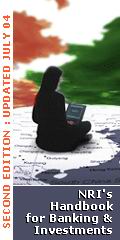|



|
Highest levels of political and economic uncertainty in 2008
9 January 2008 - The World Economic Forum released today Global Risks 2008, which highlights the need for new thinking and concerted action on a number of problems. The report expresses fears that the current liquidity crunch will spark a US recession in the next 12 months and calls for new thinking on systemic financial risk in response to the revolution in financial markets over the last two decades. It also recommends a set of principles for country risk management and examines how the financial sector might take on an increasingly important role in risk transfer in the future.
The report also warns that food security will become an increasingly complex political and economic problem over the next few years, with issues of equity and trade-offs between security and other issues making the design of global policy both difficult and necessary. Greater cooperation on managing vulnerabilities associated with cross-border supply chains and concentrations of production may also be needed. Finally, with the dollar price of oil at record highs, the report recommends an improved approach to securing viable energy supplies in the years ahead.
Global Risks 2008, published in cooperation with Citigroup, Marsh & McLennan Companies, Swiss Re, the Wharton School Risk Center and Zurich Financial Services, highlights key areas of risk that will be a focus of discussions by business leaders and public policy-makers at the World Economic Forum Annual Meeting in Davos later this month.
The report is based on input from a network of more than 100 top business leaders, decision-makers, scientists and other leading academics convened throughout 2007 as part of the World Economic Forum’s Global Risk Network. The topics identified in the report will be at the core of the agenda for the Annual Meeting.
Emerging issues in global risk
Global Risks 2008 focuses on four emerging issues which will impact the world economy and society in the decade ahead. While many of the risks cannot be avoided, they can be better understood, managed and mitigated.
• Systemic financial risk
A re-pricing of risk in financial markets was predicted by some observers at the beginning of 2007 – including by the Global Risk Network – but the scale and nature of the systemic financial crisis of 2007-2008 has raised fundamental questions as to the vulnerabilities within the current model of financial markets. Diversification of risk may have strengthened stability in good times, but systemic financial risk remains acute. Looking at the year ahead, a US recession is possible and economists are divided on whether consumption-led growth in Asia can drive the global economy. In Europe, the prominence of the United Kingdom’s financial sector makes it vulnerable, while large current account deficits in some central and eastern European economies may prove increasingly unsustainable in 2008.
Changes in financial markets over the past two decades have led to the ownership of risks being decentralized, along with greater opportunities for risks to transmit between individual firms and markets – making effective risk management all the more critical. Under normal market conditions, the financial system has improved its capacity to assume and distribute risk, and has become more stable. But, to mitigate the impact of the types of challenges seen in 2007, the report calls for increased public and private sector collaboration on stress testing, liquidity management, risk assessment and prevention to address what it describes as the “fragmentation of ownership of global risks.”
• Food security
In 2007, prices for many staple foods reached record highs and global food reserves are at a 25-year low, making world food supply vulnerable to an international crisis or natural disaster – in some cases giving rise to political instability with “food riots” which have occurred in 2007. Looking ahead, Global Risks 2008 suggests that the drivers of global food insecurity – population growth, lifestyle changes, use of crops to manufacture biofuels and climate change – are likely to sharpen over the coming decade, positioning the world for a potential long-term trend reversal in food prices and leading to a set of complex challenges to global equity.
• Supply chain vulnerability
Improvements in technology and global logistics, along with reduced trade barriers, have led to a historic expansion of international and intra-regional trade over the past 20 years. These improvements have generally led to increased efficiency and global prosperity. However, hyper-optimization of supply chains may also increase vulnerabilities to disruption and concentrations of risk. Moreover, these are often not fully understood. Though supply chains can share risk between many parties, they can also cause risks to be aggregated.
All companies and governments who depend on external suppliers face disruptions to their supply chain; building a new culture in this area, along with an international approach to supply chain risk management across private and public sectors, is among the first steps to broader risk mitigation.
• Energy
The availability of energy resources is key to the global economy, but guaranteeing a safe, secure and sustainable supply – and doing so in line with global commitments to reduce greenhouse gas emissions – is increasingly problematic. With predictions of a 37% increase in oil demand over current levels by 2030, the report sees limited scope for a fall in energy prices over the next decade. This may be good news for oil and gas producers, but it creates an inherent mismatch between those who bear risk and reward, which should be addressed through better dialogue at all levels.
Go to next page ... Click here
CLICK FOR MORE FEATURES & STORIES
|
|


|






